Case Story: Winning on one of the most difficult federal statutes
When something is difficult and the chances of success are slim, most people give up. This is usually the case when it comes to making challenges against the Government. This case deals with a complicated federal statute - 21 U.S.C. § 851 - which is notoriously difficult to win on. But we did it, and here’s how.
DISCLAIMER:
CASE RESULTS DEPEND ON A VARIETY OF FACTORS UNIQUE TO EACH CASE. CASE RESULTS DO NOT GUARANTEE OR PREDICT A SIMILAR RESULT IN ANY FUTURE CASE.
When something is difficult and the chances of success are slim, most people give up.
What’s the point, after all? Why try so hard when you are almost certainly going to lose? It’s simple cost-benefit analysis.
And 9 times out of 10, that thinking is probably right. So according to that thought process, taking the easy way out doesn’t matter.
But what about that 1 time out of 10? When your hard work would have paid off, but you’ll never know because you never tried. How do you live with yourself then?
That’s what this case is about.
The Background
Our client pleaded guilty to federal drug charges. As part of his plea, the government wanted him to agree to an enhanced sentence—meaning more time in prison—because he had certain prior convictions. Usually when the government does this, it’s because they’re confident that the convictions count for enhancement purposes.
But here’s a dirty little secret the government doesn’t want you to know: they’re not always right.
And to our client’s credit, he wanted the government to show their work. So he asked his initial lawyer to challenge the enhanced sentence by arguing that his prior convictions didn’t count. It was a longshot, but it was his right, and it’s what he wanted to do.
The problem was, his lawyer didn’t.
And the reason was simple—it’s a lot of work! Federal law in general is complicated, and the law related to enhanced sentences and prior convictions is among the most complicated of all.
His lawyer was doing the 9 out of 10 calculation. He didn’t see the point of doing all the work it would take to figure out whether the enhancement applied when the government said it did.
Cost-benefit analysis, remember?
So the client went nuclear, fired his lawyer, and hired us because he knew we’d do the work. Even if the chance of success was slim. Even if it the work was hard. Even if we had to hire experts to help us.
Because when we say we turn over every stone, we mean it.
The Legal Fight
In the federal system, when a person pleads guilty to a crime, their sentence is enhanced—meaning made longer—if they have certain prior convictions. The idea is that the person isn’t learning from their mistakes and keeps committing crimes. So they deserve a longer punishment.
Now there’s fierce debate about whether this idea has merit, but that’s a discussion for another time. For our purposes, the wisdom of sentencing enhancements was immaterial. Our one and only question was simple: Did our client’s prior convictions qualify for purposes of the sentencing enhancement?
This is some legal gobbledygook, admittedly, but it has serious real-world consequences.
Here, if our client’s prior convictions counted, it would mean he’d have to serve a mandatory 15-year prison sentence. If they didn’t, there’d be no mandatory sentence.
He’d still go to prison, but for a lot less time.
So this really mattered, both for him and for future people who had the same or similar prior convictions as him. Because if the convictions didn’t count for him, they wouldn’t count for others, either.
Knowing this, we took it very seriously.
First, we exhaustively researched the issue. We read every case remotely related to it to get a better understanding of the intricacies of the enhancement at issue — a federal statute called 21 U.S.C. § 851. And while this was helpful, it wasn’t enough.
So we next reached out to national experts who knew the issue better than us. We spoke with lawyers from the Federal Public Defenders Office, as they deal with these types of issues more than anyone else in the country.
This proved to be our ace-in-the-hole.
With their help, we developed an argument explaining why our client’s prior convictions didn’t qualify under § 851. It was hyper-technical and at times counterintuitive, but it laid out the case for why the government was incorrect to ask for an enhanced sentence.
Yes, our client was guilty. And yes, he was going to prison. But no, it shouldn’t have been for how long the government said was required.
The Decision
After we filed our brief, the government had a chance to respond. We expected their response would attempt to explain why we were wrong and why they had been right the whole time.
Specifically, that our client’s prior convictions did in fact count under § 851 and so the 15-year mandatory sentence was the appropriate amount in the case.
We didn’t think this was right, of course, but it’s what we expected. Because in almost all cases, that’s what the government does when you challenge them.
But here, they did something odd, bordering on bizarre.
They agreed with us.
I’ll write that again for good measure. The government—THE UNITED STATES GOVERNMENT—agreed with us.
They said, yeah, now that we look at it closer, it seems like our opponent is right and these prior convictions don’t count.
And honestly, good for them. It was refreshing.
We had done a ton of work in the case. And we were damn near certain our position was right. So we couldn’t figure out why the government had been taking this position.
So when their brief basically waived the white flag, it was nice to see. That’s because it showed, at least in this case, that the system worked.
The government thought in good faith the enhancement applied. We disagreed and explained to them why it didn’t. Not aggressively, but in a straightforward way. And they read what we wrote, took it to heart, and said OK, you’re right, we’ll drop the enhancement.
This rarely happens in an adversarial system. Usually both sides fight no matter what. Even if they think they’re wrong. They fight to fight.
But here, the government didn’t do that. They fulfilled their duty to do what was right, even if that meant admitting they were wrong.
The Takeaway
We’re left in an odd place with this case.
Our client is going to federal prison for a crime that he definitely committed. Usually, that’s bad news. And it’s bad news here—our clients going to prison is always bad news. But the silver lining is that he’s not going to prison for nearly as long as he originally thought. Or for as long as his first lawyer was ready to let him.
We turned over the rock, found the 1 out of 10, and saved our client years of his life.
It was more work than we expected, but we got it right. And for that we’re proud.
Additional Case Stories
-

Winning a Federal Drug Case
We got 65 pounds of drugs suppressed and saved our client nearly two decades in prison. It was one of the largest amounts of drugs suppressed in recent North Dakota history.
-

Preventing An Unjust Fraud Conviction
When our client came to us, she was charged with felony fraud and facing years in prison. All because she was the victim of a hacker. We worked hard to make sure this unjust charge got dismissed so her future could remain intact.
-

Winning the First Federal Illegal Reentry Case of Its kind
We were one of the first law firms in the country to take a Supreme Court immigration ruling and apply it to a criminal conviction – and win.

